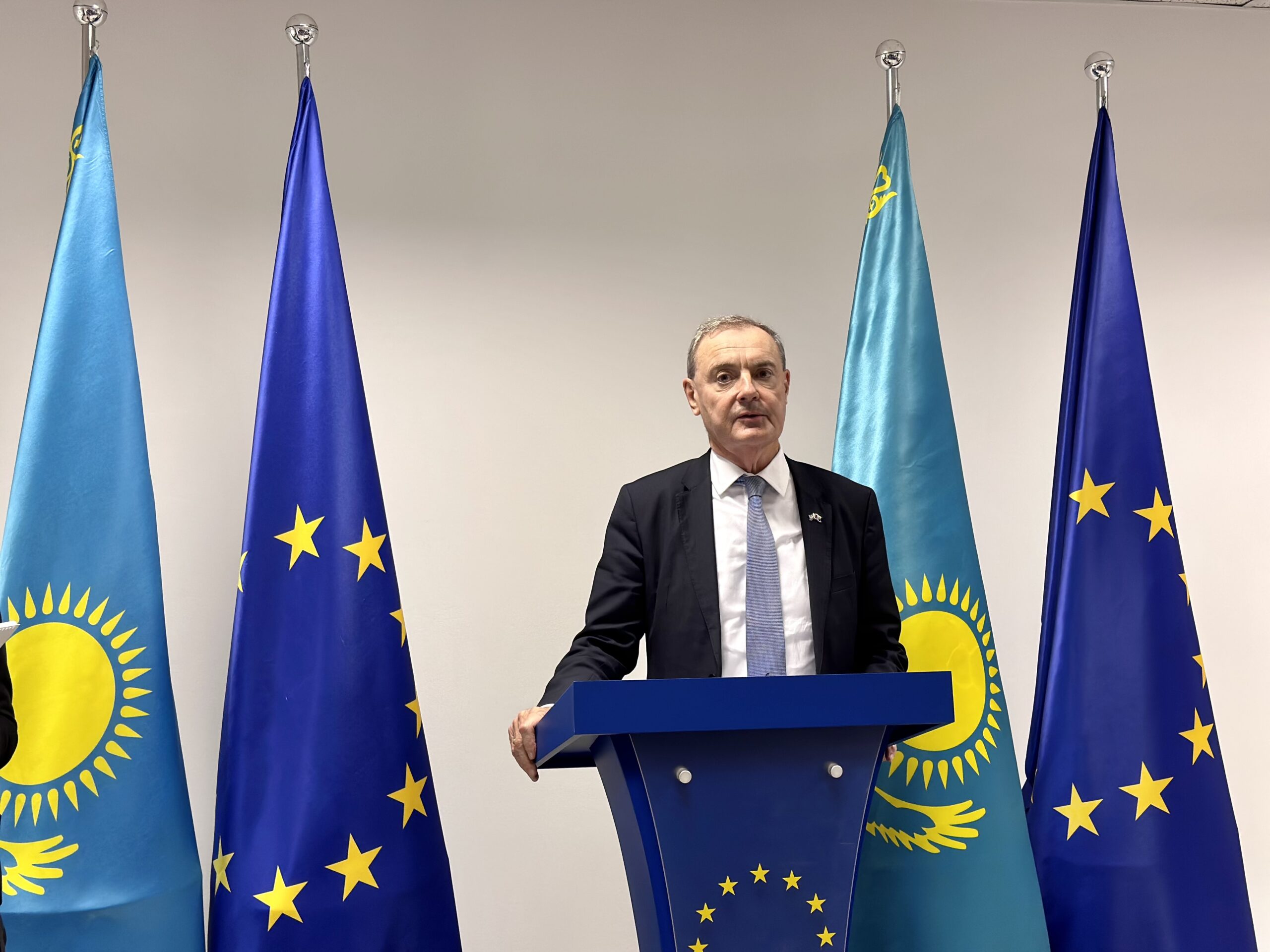ASTANA – The European Union (EU) commends Kazakhstan’s efforts in decreasing the re-export of dual-use sanctioned items to Russia. This was announced by International Special Envoy for the Implementation of EU Sanctions David O’Sullivan, who delivered statements on positive dynamics in the EU-Kazakhstan cooperation at a Nov. 28 press conference during his second visit to Astana.

David O’Sullivan at a Nov. 28 press conference in the Kazakh capital. Photo credit: The Astana Times.
“We are grateful to the Kazakh authorities for decreasing the re-export of items, which are likely to end up in Russian military equipment,” said O’Sullivan.
His previous visit in April this year was based on the assumptions about unusual trade flows, suggesting third countries might become a route for Russia to import a range of goods from Europe, bypassing the sanctions.
“We fully respect the decision not to align with our sanctions. But it is also true that for countries such as Kazakhstan, which wish to trade with the EU and attract investments, acquiring a name as a place for evading sanctions is not good for the reputation, or for the likelihood of people who want to invest in trade here,” the special envoy said.
Indeed, the EU is Kazakhstan’s key trade and investment partner. Data from the Kazakh Foreign Ministry indicates that last year’s trade turnover reached a record high of $40 billion out of the $134 billion in annual foreign trade.
In January-September, trade turnover between EU and Kazakhstan hit $30.5 billion. As for the foreign direct investment (FDI) inflows from the EU, in the first quarter of this year, they reached $5.2 billion.
“In April, Kazakh authorities made it very clear that they didn’t wish Kazakhstan to be used as a jurisdiction for the circumvention of sanctions, and in particular, for the circumvention of sanctions related to military equipment,” O’Sullivan noted.
“We are very happy to have a good and constructive dialogue,” he added.
O’Sullivan reminded that an unprecedented set of sanctions against Russia is aimed to prevent the entry of technologies for the development of military equipment, to deprive the Russian government of the revenue for financing the war, as well as to impose a high cost on its military industrial complex.
“At the level of the international coalition and the Group of Seven (G7), we have developed a specific list of products, which we believe can contribute to Russia’s military industrial capabilities,” he said.
This is a list of 45 six-digit Harmonized System (HS) codes, which imply an innocent use in civilian situations. In terms of ongoing military conflict, he noted that these items will “find their way to Russian missiles, drones, or artillery shells. These are the products that the Ukrainian colleagues have found in Russian military equipment on the battlefield,” he said.
“On the other hand, we have seen that for some products, there has been an increase in the reexport to Russia,” said O’Sullivan.
The special envoy said there is work to be undertaken related to advanced technology items, the area of the EU’s special concern.
O’Sullivan added that the re-export is valued at approximately 200 million euros (US$220 million) a year. He underlined the lethal nature of the potential trade, as these products, he emphasized, “go directly into armaments and weapons.”
As a case in point, he brought examples of integrated circuits, chips, flash memory cards, optical readers, saying that “none of them are actually produced in Kazakhstan.”
“The purpose of these visits is not to persuade countries to adopt our sanctions or to align with them, but to discuss with them how they can avoid their jurisdiction being used as a platform for the circumvention of our sanctions, or as a platform for servicing the Russian military industrial complex,” he said.
O’Sullivan has now been twice to Kazakhstan. Uzbekistan is the next destination on his route. He has paid official visits to Armenia, the Kyrgyz Republic, Serbia, the United Arab Emirates, Türkiye, and plans to set off to India next week.
